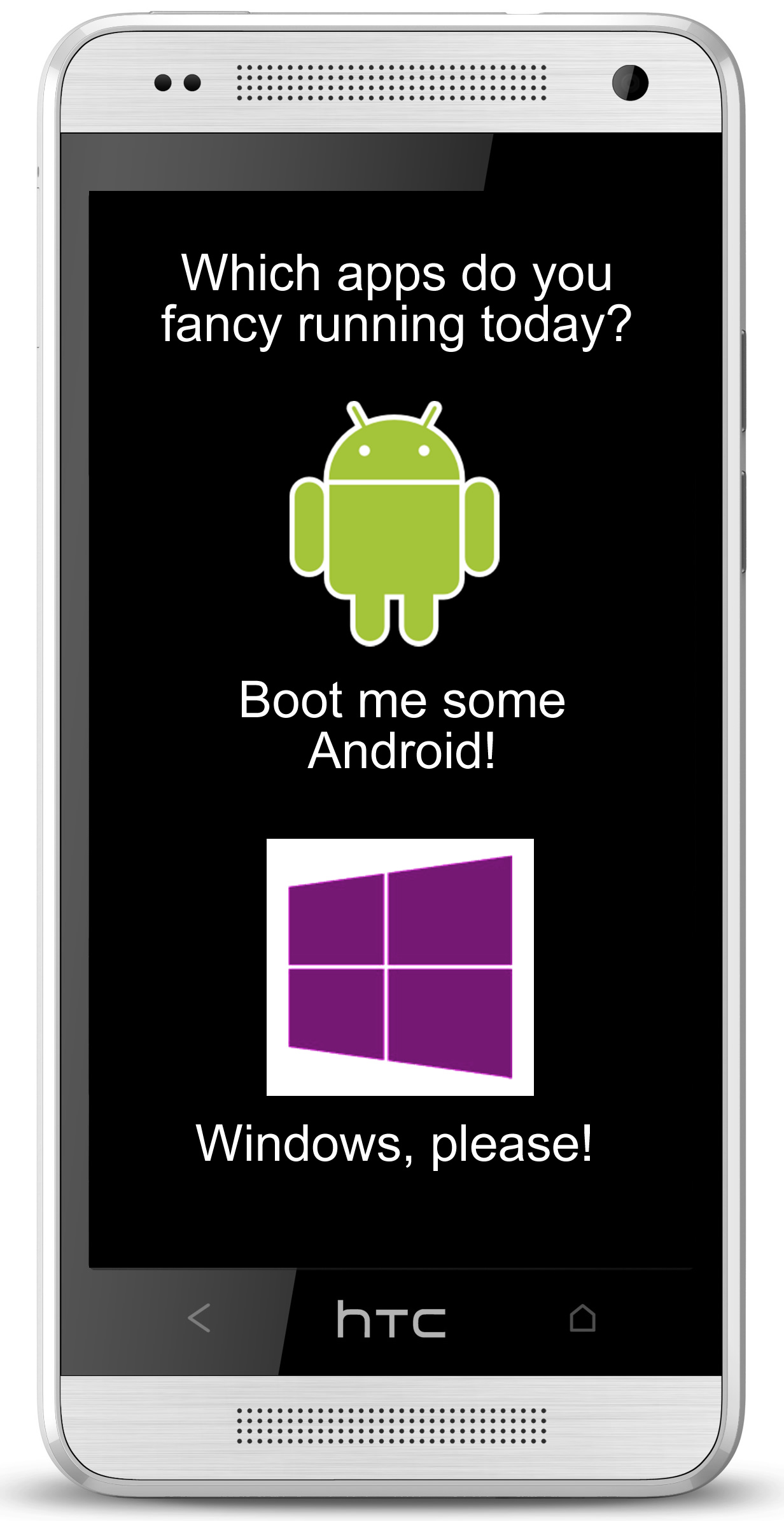Here's why we all need to be technology sociologists

Someday the technology industry will hit "peak stupid" and we'll stop trying to shove ridiculous ideas down the throats of the people who use our stuff.

Imagine that utopian society. Everyone will be happy. No one will waste their money on rubbish. It'll be sunny everyday. And I won't have anything to complain about...
Today, however, is not that day. There's a rumour going around that Microsoft wants HTC to make a phone that dual boots Android and Windows Phone.
The plan
A dual-booting smartphone is the latest in this year's circus of fail. We started off with CES in January with fridges that run Evernote, took in the sights of Ubuntu Edge — a smartphone that was also a laptop, very recently enjoyed the wonder of a smartwatch that doesn't do notifications properly (although I should say ZDNet's Matthew Miller did like his Gear), and now a dual booting phone.
Way back in 2008, ZDNet's Jason Perlow wrote about a company looking to build a system for building a phone based hypervisor. The idea here is that a phone could run multiple operating systems simultaneously.
There is one (and only one) good reason why would want to do this — to keep one's life separate when it comes to having one device that's use for work, and another for the rest of your life. If you can run two virtual machines on one device you can increase your safety and security, and drive down potential for embarrassment.
The idea of cleaving a phone in half to keep everyone happy and safe is a good one. I can get behind that.
But Microsoft's overtures to HTC aren't this. The rumour going around is that either a user will be able to boot up a phone into a choice of operating systems, or that somehow the two will be blended so that you boot into a "master" operating system and run apps from a guest.
(Both these ideas are present in BlackBerry 10, by the way.)
Engineering-wise, dual booting is easy. Windows Phone and Android run on essentially the same hardware. All you need to do is create a bootloader and the user chooses when they turn it on. The other option — creating an Android player that runs on Windows Phone or a Windows Phone player that runs on Android is significantly more technically difficult, as well as politically pernicious. Don't hold your breath for this.
Why?
We've looked at the technology. But, no one is asking this vital question: "Why?"
Technologists never ask this question, and really we need to start.
Or, maybe we do ask this question, but yet we still roll up our sleeves and get to work the moment our brain provides the answer "because it's cool!"
A non-technologist responds to many ideas that technologists posit with a simple phrase: "So what?"
Here's a sketch of a technologist trying to explain a dual booting phone to a normal human:
Normal person: "Wait, so I turn my phone on, and I choose what 'operating system' it's supposed to run?"
Technologist: "Yes!"
Normal person: "Right. First question — what's an operating system?"
Technologist: "You know how your laptop runs Windows? That's an operating system."
Normal person: "OK, so this phone runs Windows?"
Technologist: "Well, sort of. It can run a version of Windows called Windows Phone that's designed for Windows, but it also runs Android."
Normal person: "What's Android?"
Technologist: "It's like Windows. But it's made by Google."
Normal person: "OK, so I don't really understand of that that. Anyway, can I run Instagram on this?"
Technologist: "Yes, if you boot into Android. If you're running Windows Phone you'll have to turn your phone off, turn it on, and boot it into Android."
Normal person: "So if I see something I want to Instagram, I have to turn my phone off?"
Technologist: "You might have to turn your phone off."
Normal person: "How would I know if I have to turn my phone off?"
Technologist: "You need to look to see if you're running Windows Phone or Android?"
Normal person: "How do I do that?"
And all of this that is nothing, nothing compared to what life will be like for that user when they find the million and one tiny usability problems with running a dual-personality device like this.
Remember, as an industry we now know what usability problems dual-personality user environments create — Microsoft showed the gold standard in confused user experiences with Windows 8.
The bottom line
This is why we all need to be technology sociologists, and stop being "technologists".
Featured
The sample conversation I've imagined above — we've all had conversations like that. Every one of us at some point has sat down with a significant other, or a colleague, and fallen into the mire of assumed technical knowledge, and a "solution first" mindset. This is what technologists do because our desire is to build not use.
The scenario above, all that user wanted to do was take a picture of their kids and share it on Instagram. And everything we did got in the way of that. The sociological side — the sharing, the recording of memories, the social connection — that's the important bit. The actual technology is never important.
A technology sociologist sits at the crossroads between technology and sociology, much like a CTO sits at the crossroads between technology and the business's commercial needs.
To do good product design, all we have to do is strip away the stuff that seems cool and that we want to build, and that doesn't make our family and friends look at us with that quizzical look when we tell them about it.
They're the ones that need to say "that's cool", not us.
What do you think? Post a comment, or talk to me on Twitter: @mbrit.